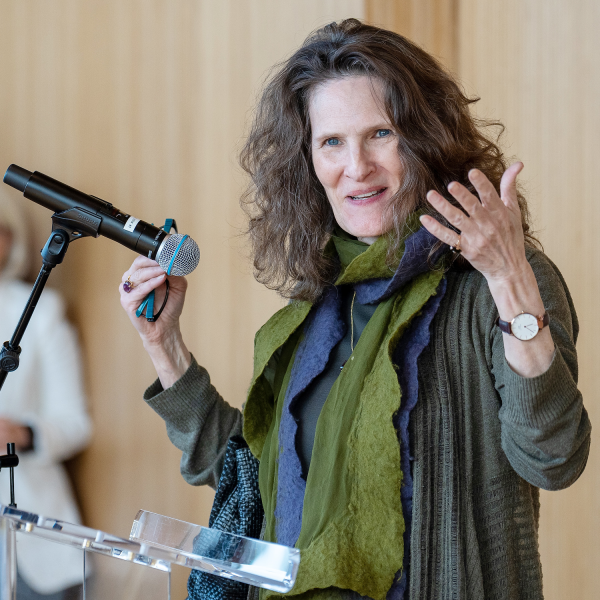
The Department of Classics encourages innovative and interdisciplinary scholarship that converges with work in a variety of fields. In keeping with the pluralistic and collaborative nature of the faculty’s research, students focusing on Classics often explore additional coursework in adjacent subject areas, including Art History, Comparative Literature, English Literature, Germanic Studies, Linguistics, Philosophy, Romance Languages and Literatures, Social Thought, and Theater and Performance Studies.
Selected Faculty
Sample Courses
Stoics, Sceptics, and Epicureans (CLAS 33909) Spring 2025
Ancient Greek Philosophy was remarkable for the creation of three main types of philosophy after Aristotle: Epicureanism, Stoicism, and Skepticism. Marx admired this trio as a highlight of Greek philosophy. Differing fundamentally from each other, Epicureanism relies on the evidence of the senses and proposes pleasure as the goal of life; Stoicism values morality as a way of attaining union with god; the Skeptics reject both. Each type of philosophy responded dynamically to the others and kept evolving by continually adapting to diverse social circumstances, both Greek and Roman. Each also had a lasting influence on the development of later European philosophy. We will trace their significance by reading texts in English translation; no Greek or Latin is required. (Elizabeth Asmis)
Race, Rome, and Greece (CLAS 33424) Spring 2025
How appropriate or useful is the application of the idea of “race” to practices in ancient Greece and Rome? What revelations about the classical or modern and contemporary worlds does the idea of “race” afford? Race has long been considered a modern phenomenon, traceable in such practices as the Transatlantic Slave Trade. Recent scholarship has identified race (or racialization, at least) in the European Medieval period and the Renaissance. In this class, we will evaluate the scholarship of race in classical antiquity and the texts and artifacts upon which it relies. (Patrice Rankine)
Pedagogy for the Ancient Language Classroom (CLAS 49200) 2024-2025
This course offers a survey of the fundamentals of pedagogy for the ancient language classroom with an emphasis on introductory and intermediate instruction. Topics include methods of language teaching, language skills and proficiency, modes of assessment, course design, textbook selection, educational technology, online resources, lesson planning, effective presentation, support materials, and the principles and practices of classroom management. Activities include the creation of sample materials and mock teaching. Students who successfully complete this course will acquire a foundation in language pedagogy and be well prepared for introductory and intermediate instruction in languages such as Latin and ancient Greek. (Christopher Simon)
Archaeologies of gender (CLAS 33024) Winter 2024
How have archaeologists approached the study of gendered practices, and can their work contribute to theoretical and methodological discussions of gender across the social sciences and humanities? How can we use material objects and things to examine or explain gendered identities, especially in the deep past? In this course, students will engage with a range of research, from different disciplinary perspectives, to explore how gender is situated in archaeological theory and praxis and its political implications. Through multiple case studies, the course will interrogate how archaeologists study, analyze, and interpret material remains to examine gendered ideologies and material practices and their intersections with other social constructs: class, sex, race, ethnicity. Coverage is cross-cultural and aims to expose students to the diversity and variability of gendered and sexual experiences of different people across time and space. Topics include but are not limited to: embodiment and expression, gender roles, sexuality, parenthood and childhood, masculinity, biopolitics, and feminist theory. (Catherine Kearns, Alice Yao)
A complete listing of offerings is available at the Department’s course page.
Classical Languages Specialization
The Classical Languages Specialization is intended for students who wish to study Classics at the graduate level but require additional strengthening of their language skills in order to meet the admissions requirements of most major PhD programs. Students interested in the Classical Languages Specialization must have at least two years of either Greek or Latin and one year of the other language before beginning MAPH. All students are welcome to take Classics courses at all levels without pursuing the Classical Languages Specialization.
The students will take a placement test on arrival, in both Greek and Latin, and meet with the DGS and the language program director in Classics for advice on courses in Classical languages.
Students who complete the following requirements will receive a Classical Languages notation on their transcript:
- MAPH Core course (Foundations of Interpretive Theory)
- Seven elective courses, six of which must be in Greek or Latin
- Completion of a thesis on a Classical topic
- Passing the MAPH translation exam in Greek and/or Latin, taken in Spring quarter
The translation exam in Latin, Greek, or both languages can be taken in the Spring quarter. Two-Year Language Option students typically take one or both exams at the end of their second year, but students who feel sufficiently prepared can take it on their first year.
- The exam consists of two passages, one prose (ca 150 words), one poetry (ca 20 lines), for which the student will be given 2 hours of time and will be allowed to use a dictionary (LSJ or Brill for Greek, OLD or Lewis and Short for Latin) to produce a translation into English. Digital dictionaries will not be allowed.
- Students should register for the exam by notifying the Director of Graduate Studies in Classics by the third week of Spring quarter. The exam will be given during exam week.
Recent Classics Thesis Projects
“The Integumental Interpretation of the Timaeus and its Influence on Dante”
Jack Drury, MAPH TLO ‘25
Advisor: Sarah Kunjummen
“Iphigenia at Aulis: A New Translation for the Stage”
Claudia Sturgell, MAPH ‘25
Advisor: Christina Filippaki
“Revenge and Cannibalism in Seneca’s Thyestes: Bacchic Wrath and Restoration”
Miaohan Wang, MAPH TLO ‘25
Advisor: David Wray
"Cultural Transition from Republic to Empire: Literary Practice of the Recitationes and the Atrium Libertatis"
Ryan Alsop, MAPH TLO '22
Advisor: Clifford Ando
"On Being ἐοικώς: Towards a Non-Binary Dionysus In and Beyond Euripides’ Bacchae"
Emma Pauly, MAPH '21
Advisor: Patrice Rankine



